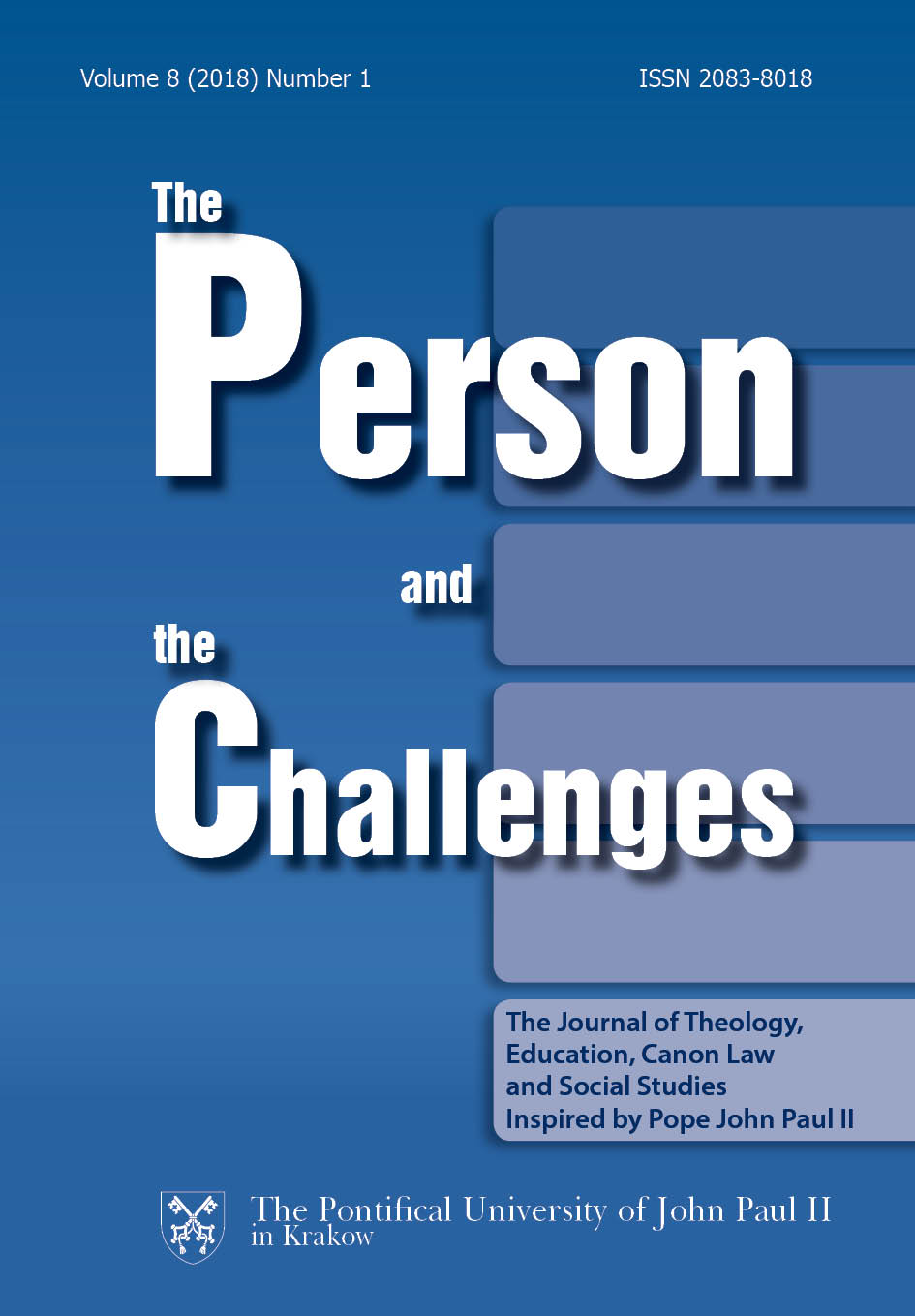Contemporary Catholic Studies in a Secular University: Friend or Foe?
DOI:
https://doi.org/10.15633/pch.2422Słowa kluczowe:
Contemporary Catholic studies, hermeneutics, religious education, communication, identity, secular university, development of identityAbstrakt
Through the introduction of a new hermeneutical model of communication in RE, this article intends to explore an innovative approach to developing Christian identity in a secular university. The author holds a joint lectureship in religious education, catechesis and pastoral theological education. Religious education and catechesis are concerned with all aspects of the teaching of religion in schools, within the parish and any other pastoral setting. pastoral theological education is concerned with the place of learning within religious communities and the larger society. This distinction has resulted in this research proceeding along two parallel routes: the institutional educational environment, religious communities and society as a background influencing our value change as well as the way we do RE in schools. The main concern of the author is to develop practical ways of enhancing the Catholic religious identity and theological literacy of students in the state secondary schools and universities in the UK, on the basis of contemporary theological anthropology and educational theoretical foundations. This article is an investigation into a new understanding of the development of Catholic identity and new models of RE used in a contemporary secular university.
Bibliografia
Agamben G., Nudities, (2010), Chapter 2. Translated by D. Kishik and S. Pedatella.
Bieringer R., ‘Jesus versus the Physicians: A Narrative-Critical and Social-Ethical Analysis of the Synoptic Stories of the Healing of the Woman with a Hemorrhage (Mt 9:20-22 par Mk 5:24b-34 par Lk 8:43-48).
Crumlin R., Beyond belief. Modern art and the religious imagination, Melbourne, National Gallery of Victoria, 1998.
Crumlin R., The Blake Book. Art, Religion and Spirituality in Australia, South Yara, Australia, MacMillan, 2011.
Clark B. R., Creating Entrepreneurial Universities. Organizational Pathways to Transformation, Oxford, 2001.
Davie G., Europe: The Exceptional Case, Parameters of the Faith in the Modern World, London: The Bath Press, Bath, 2002.
Davie G., Europe: The Exceptional Case, Parameters of the Faith in the Modern World, London: The Bath Press, Bath, 2002.
Hechter M., Opp, K.D. and R. Wippler, Social Institutions: Their Emergence Maintenance and Effects, Cambridge, MA: Harvard University Press, 1990.
Inglehart R. and Welzel, Ch., Modernization, Cultural Change, and Democracy, the Human Development Sequence, USA: Cambridge University Press, 2005The Human Development SequenceUSACambridge University Press.
Inglehart R., Human Values and Social Change, USA: Cambridge University Press 2011.
Gortnitzka A. & Maasen P., The Economy, Higher Education, and European Integration: An Introduction, “Higher Education Policy” 13 (2000), pp. 217-223.
Lombaerts H., Presence of the Church in an Academic Environment. Orientations for Campus Ministry, “Soter” 9 (2003), pp. 43-52.
Molendijk A.L. and Kroesen J.E.A. (eds.), Sacred Places in Modern Western Culture, Leuven, Peeters 2011.
Mulamoottil A., A Contextual Theological Approach to Christian Identity and its Implications for the Ongoing Faith Formation in India, Leuven 1998.
Pope J. Paul II, Angelus 27 July 2003, “L’Osservatore Romano”, 28-29 July 2003, 1.
Thiederman S., Making Diversity Work: Seven Steps for Defeating Bias in the Workplace, Chicago: Dearborn Press 2003.
Smelser N., The Modernization of Social Relations, in: M. Weiner (ed.), Modernization, New York: Basic Books 1966, pp. 44-52.
Žižek S., Living in the End Times, Verso, London- New York 2011.
Willaime J.P., Europe et religions. Les enjeux du XXIe siècle, Paris 2004, 347-356.
Pobrania
Opublikowane
Numer
Dział
Licencja
Prawa autorskie (c) 2018 Birute Briliute

Utwór dostępny jest na licencji Creative Commons Uznanie autorstwa 4.0 Międzynarodowe.
Autorzy publikujący w czasopiśmie udzielają jego wydawcy zgody o następującej treści:
- Autor zachowuje autorskie prawa majątkowe do utworu, a jednocześnie udziela wydawcy czasopisma zgody na jego pierwszą publikację w wersji drukowanej i wersji online na licencji Creative Commons Uznanie autorstwa 4.0 Międzynarodowe oraz zgody na wykonywanie opracowań, w tym przekładów.
- Autor ma możliwość udzielania zgody niewyłącznej na opublikowanie utworu w wersji, która ukazała się w czasopiśmie (np. zamieszczenia go w repozytorium instytucjonalnym lub opublikowania w książce), wraz z informacją o jego pierwszej publikacji w czasopiśmie.
- Autor może umieścić swój utwór online (np. w repozytorium instytucjonalnym lub na swojej stronie internetowej) jeszcze przed zgłoszeniem utworu do czasopisma.

